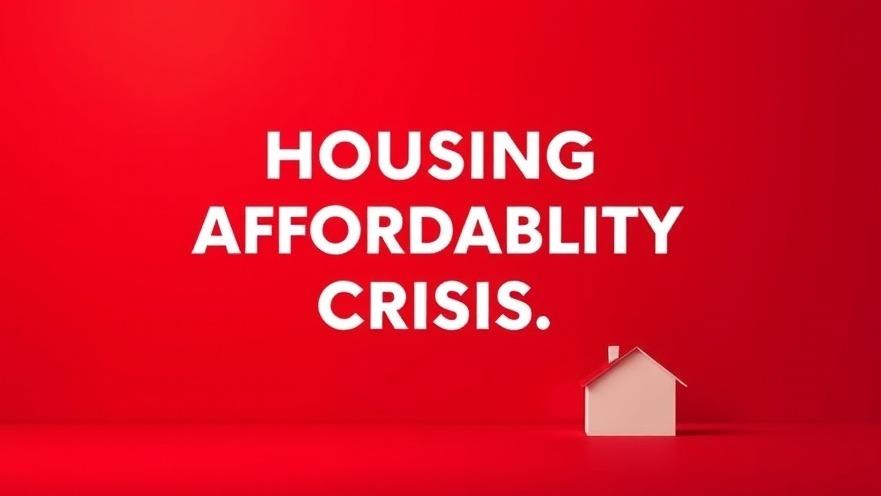
A New Era for Housing Development in Texas
The Texas legislature has taken a significant step toward addressing the housing affordability crisis that has gripped the state, where home prices continue to soar beyond the reach of many residents. In a bold move, the Texas House voted to advance House Bill 24, which aims to reduce the influence of local NIMBY (Not In My Backyard) opposition to new housing developments. This legislative shift signifies a profound commitment to reshaping housing policies to meet the soaring demand for affordable homes.
The Rationale Behind HB 24
With an estimated shortage of 320,000 homes, it is clear that Texas needs to ramp up construction to meet its growing population's needs. Lawmakers have recognized that the NIMBY mentality can severely hinder the development of essential housing projects. House Bill 24, championed by Rep. Angelia Orr, seeks to dismantle archaic laws that facilitate such opposition. It raises the threshold for property owners to object to new developments from 20% to 60%, thereby streamlining the approval process for new housing projects and supporting the broader goal of increasing affordable housing options across the state.
Diverse Perspectives on the Bill
While the bill has been hailed as a necessary reform by many, it has also faced criticism. Some opponents, like Rep. John Bryant from Dallas, argue that the legislation could undermine homeowners' rights. He has expressed concern that a simple majority vote could allow undesirable commercial and industrial developments in residential areas, altering the character of neighborhoods. Proponents, however, believe that the bill's safeguards will prevent this scenario by maintaining a focus on promoting affordable and multifamily housing developments without compromising residential integrity.
A Historical Context: The Legacy of Zoning Laws
The current struggle between local opposition and the need for more housing has deep historical roots. Many zoning laws were created during the Jim Crow era, aimed at segregation and preventing certain communities from developing. The revival of these discriminatory practices in modern times illustrates how critical it is to re-evaluate such laws to ensure they serve the public good rather than perpetuate inequalities.
What Does This Mean for Texas?
This legislative change signals a potential transformation in how Texas addresses its housing crisis. Key stakeholders, including housing advocates and local business leaders, have emphasized that easing zoning restrictions is essential for fostering economic growth. Constructing affordable housing could boost local economies, giving a much-needed lift to Texas’s fast-growing cities.
Future Predictions: A Housing Boom on the Horizon?
If House Bill 24 passes its final vote, experts predict a wave of new housing development, particularly in urban areas like Austin, Dallas, and Houston. More accessible housing will not only enhance the quality of life for residents but may also stabilize rising housing costs that have pushed many families to the brink. However, it remains to be seen how quickly developments can materialize and whether the local governments can keep pace with the demand.
Taking Action: What Residents Can Do
As Texas residents, it's crucial to stay informed about changes in housing policy and engage with local representatives about their needs. Constituents can participate in public hearings and advocacy groups pushing for balanced development that considers both community input and the need for affordable housing. Understanding these dynamics can empower residents to ally themselves with efforts that promote sustainable growth.
Conclusion: The Path Forward
The Texas House's recent vote reflects a consensus among state lawmakers to prioritize housing within their legislative agenda. While the passage of HB 24 could be a game-changer for affordable housing, it will require vigilance from residents to ensure their voices are heard and their neighborhoods preserved. As the state navigates this critical juncture, collaboration between lawmakers, developers, and constituents will be key in building a future that addresses the housing affordability crisis head-on.
 Add Element
Add Element  Add Row
Add Row 



Write A Comment